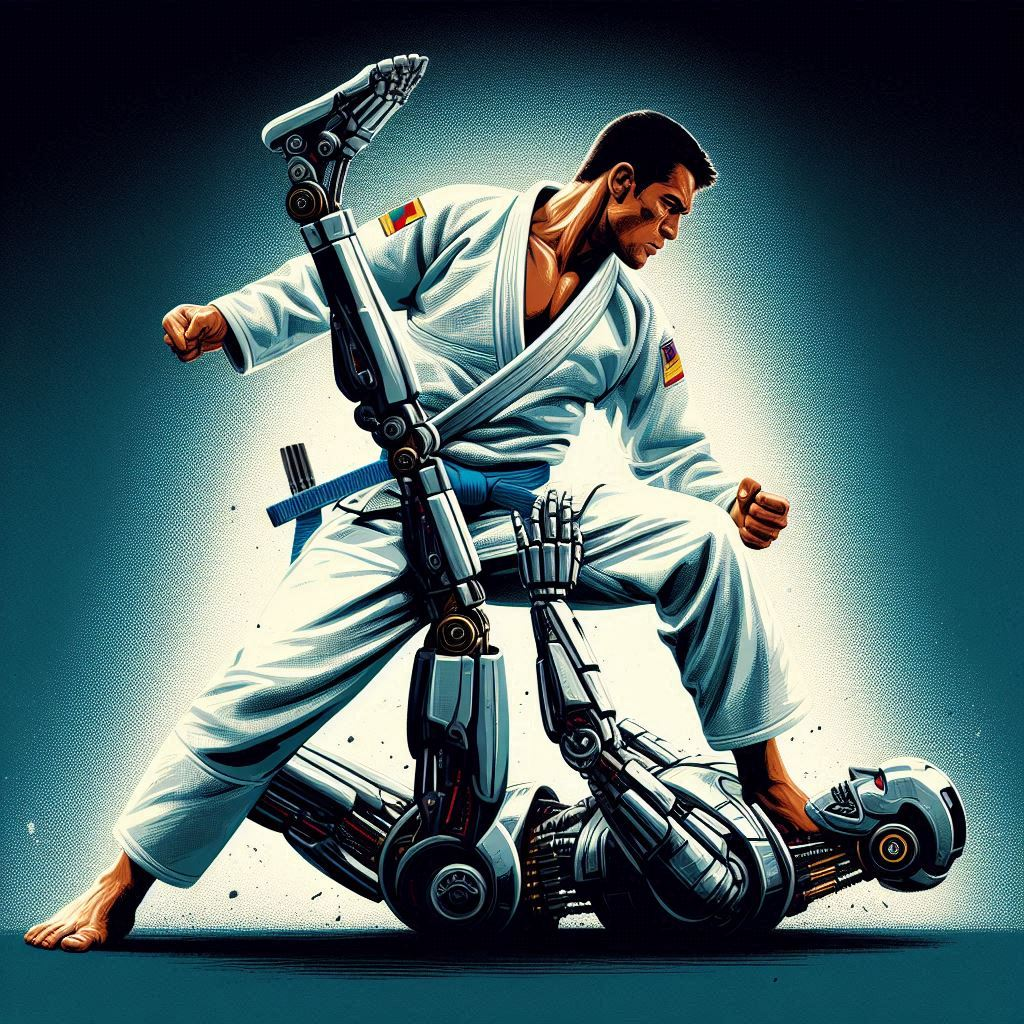You have probably seen that prominent tech leaders such as Mark Zuckerburg and Elon Musk are training in Brazilian Jiu-Jitsu. Maybe you wonder how fighting appeals to these titans of the tech industry. I won’t argue the efficacy of one martial art over another, but one thing that stands out for Jiu-Jitsu is that you can practice it at a very high level of intensity without taking the damage you would from striking with the same force. There is also the “nerd” factor. Jiu-Jitsu has a combination of techniques and positions that are more expansive than chess. So, you not only train your physical abilities, but you also have to expand your mental capacity for complex gameplay. I am far from a Jiu-Jitsu master, but here are three ways training in BJJ has benefited me as a people leader.
Humility
There are not many feelings quite as humbling as your beginner experience in Jiu-Jitsu. Most adults have a good deal of confidence in themselves and how they could handle a physical encounter. They are usually a long time removed from any experiences in contact sports. Business leaders, by their nature, have even more confidence in themselves. This confidence will come crashing down when you are repeatedly manhandled by everyone around you. There is nothing that makes one feel quite as helpless as being totally controlled by another human being.
Confidence is a great attribute for leaders. But false confidence built through deferential response to your title is corrosive. The higher you rise in an org chart, the more distorted your view of reality can become as more and more people react to you as always right. You also tend to lose the perspective from where you previously sat, lower in the reporting hierarchy. Starting Jiu-Jitsu as an established business leader restarts you down at the bottom of a new hierarchy. This helps connect you with the mindset and feelings of those at the bottom of your own organization. Because Jiu-Jitsu is a combative contest, it leaves no doubt about where you stand, regardless of your rank at work or even in the art itself.
Intimacy
Leading people entails dealing with the messiness of the human condition. These details can be uncomfortable to address or sometimes even just to hear. I have been surprised by the personal details that people chose to share with me simply because I was in a leadership position. If we shy away from these conversations because we are uncomfortable, we are weakening our connections and possibly even alienating the people we are supposed to lead. If we are too disconnected from the real people in our organizations, we make decisions based off of spreadsheet calculations. The more distant we are, the harder it is to have compassion and empathy.
You don’t get much more plutonic intimacy than while training Jiu-Jitsu. Things like having a conversation while another adult essentially sits in your lap becomes normal (or at least normalized). While it is a bit awkward, especially at first, you become accustomed to being very close to people. Both physically, but also emotionally as you train together over time. I believe that my time spent closely with a diverse array of training partners on the mats enables me to be more comfortable engaging in messy conversations and making business decisions that fueled by human connection.
Perspective
Training Jiu-Jitsu requires intense focus on what is happening in the present moment. That type of singular focus is exceedingly rare for most leaders sitting at a computer with constant pings and distractions from every possible app. This background noise disappears when you step on the mat. Fighting off a determined and skilled opponent forces your attention onto a single task. In a way, Jiu-Jitsu is a type of deep work that helps build your mental capacity to focus on one thing with your full intensity.
Jiu-Jitsu has a way of turning down the volume on all the stress and distraction in your life. Yes, it can be an intense study, but it is also playtime. When’s the last time you wrestled around like a little kid in your adult life? Play helps us not take things so seriously. Time on that mat trains us to focus intensely and turns down the noise on all the distractions that may seem important but really are not. It teaches us to work through conflict systematically. We learn to manage our response to stressors and to act with intention. We won’t always “win”, but we will ensure we show up with our best effort for ourselves and for our people.
